detail profile hugo carvana
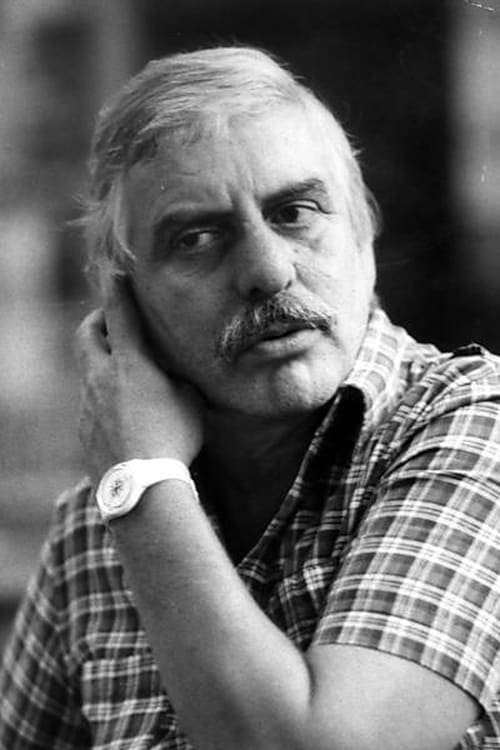
Riwayat Hidup
Hugo Carvana de Hollanda (Rio de Janeiro, June 4, 1937 – Rio de Janeiro, October 4, 2014) was a Brazilian film and television actor and director.
Initially associated with scoundrel-type characters during his early career, he played parts in many Brazilian New Wave (Cinema Novo) films.
He later moved on to starring and directing comedies, such as his directorial debut, the self-starred "Vai Trabalhar Vagabundo!" (1973) and his last film "A Casa da Mãe Joana 2" (2013).
During his later career, he was also a recurring actor in Brazilian soap operas.
Carvana died in October 4, 2014, from complications caused by a lung cancer.
Info Pribadi
Peran Yang Di Mainkan Hugo Carvana
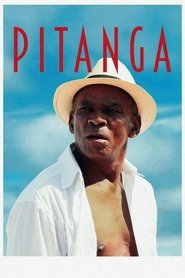 This documentary investigates the aesthetic political...
This documentary investigates the aesthetic political...Pitanga 2016
This documentary investigates the aesthetic, political and existential trajectory of emblematic Black Brazilian actor Antônio Pitanga. His career spans over five decades, and he has worked with iconic Brazilian filmmakers Glauber Rocha, Cacá Diegues and Walter Lima Jr. He was a prominent figurehead and outspoken activist during the Brazilian dictatorship, a period of unrest in Brazilian cinema. "Pitanga" deep dives into the world of Antônio and the history of Brazil. The documentary was directed by his daughter Camila Pitanga, one of widely recognised faces in Brazilian television and cinema right now. The film is also a poem, and a tender ode to fatherhood.
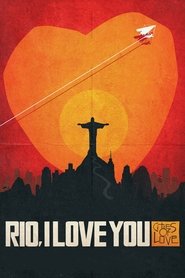 The third episode of the Cities...
The third episode of the Cities...Rio, I Love You 2014
The third episode of the Cities of Love franchise, Rio, I Love You is an anthology, created by 10 visionary directors from across the globe. The story line of each segment focuses on an encounter of love in a different neighborhood of the city, demonstrating the distinctive qualities and character of that location. The film serves to bridge gaps between cultures, educating and entertaining the audience, while celebrating unique and universal expressions of love.
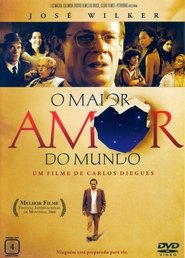 Antnio is an astrophysicist who has...
Antnio is an astrophysicist who has...The Greatest Love of All 2006
Antônio is an astrophysicist who has just found out he has an inoperable brain tumor. After decades living in the United States, he returns to Brazil and tries to learn more about his biological mother. His quest sends him off into the slums of Rio de Janeiro.
 At 84 years of age Lcia Rocha...
At 84 years of age Lcia Rocha...Abry 2003
At 84 years of age, Lúcia Rocha admitted herself to a hospital in São Paulo to undergo heart tests. Upon receiving the news about the risk to her life, Lúcia, laconic, tells the doctor: 'Then open it'. This is the second time she has undergone bypass surgery. From this gesture, the documentary Abry was born (with y, sign of the unconscious, according to the nomenclature invented by his son, Glauber Rocha). To relate her memories, she invites filmmaker Joel Pizzini, who offers his mini camera as an instrument to amplify Lúcia's imagination. Abry is a poetic dive into Lúcia Rocha's fabulous universe, reconstructing her trajectory in Brazilian cinema through sounds, images and characters with whom she lived closely.
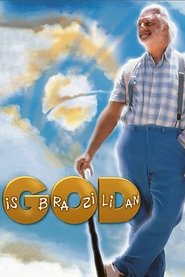 God decides to take a vacation...
God decides to take a vacation...God Is Brazilian 2003
God decides to take a vacation, but first He has to find a saint who can rule the universe while He's away. So He goes to the Northeast of Brazil, where He believes there's a very good man for the job. As soon as He comes down to Earth, a young man comes along to help on His quest.
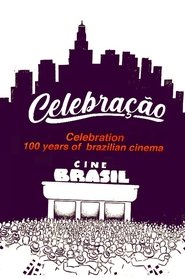 Portraits and excerpts from Brazilian films...
Portraits and excerpts from Brazilian films...Celebração - 100 Anos do Cinema Nacional 1997
"Portraits and excerpts from Brazilian films from all times. Actors, directors and images that affirm cinema."
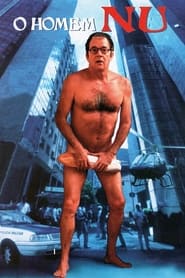 Writer Slvio Proena needs to travel...
Writer Slvio Proena needs to travel...The Naked Man 1997
Writer Sílvio Proença needs to travel to São Paulo in order to promote his new book. At the airport, he meets a group of old mates. With the boarding canceled due to a strong storm, the group goes to the apartment of Marialva, daughter of one of Proença's friends. Seduced by Marialva's music and charms, Proença spends the night there, where he wakes up the next day, completely naked. Still groggy from his hangover, he goes to pick up the bread left outside the apartment; that's when the wind closes the door and leaves him naked outside.
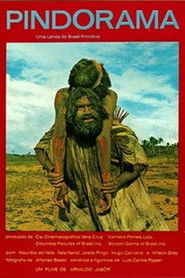 This Brazilian film is set during...
This Brazilian film is set during...Pindorama 1970
This Brazilian film is set during the period of its initial colonial discovery and settlement. The title refers to a word the native peoples used for the coastal lands: "pindorama," or "place of the small trees." A ponderous and grandiose film, it was roundly booed when it was aired at the 1971 Cannes Film Festival.
 Born a fully grown black man...
Born a fully grown black man...Macunaima 1969
Born a fully grown black man in a village in the Brazilian jungle, Macunaíma later magically transforms into a white man before making an adventure-filled trip to the city of São Paulo. Once there, he becomes something of a dandy, falling in love with Ci, a revolutionary who dies in an accidental bombing. After robbing a ruthless industrialist, Macunaima returns to his village where he finds his newly acquired knowledge and possessions of little use.
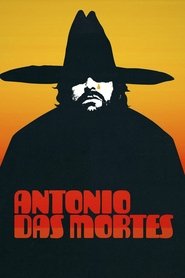 A new incarnation of Cangaceiro bandits...
A new incarnation of Cangaceiro bandits...Antonio das Mortes 1969
A new incarnation of Cangaceiro bandits, led by Coirana, has risen in the badlands. A blind landowner hires Antônio to wipe out his old nemesis. Yet after besting Coirana and accompanying the dying man to his mountain hideout, Antônio is moved by the plight of the Cangaceiro’s followers. The troubled hitman turns revolutionary, his gun and machete aimed towards his former masters.
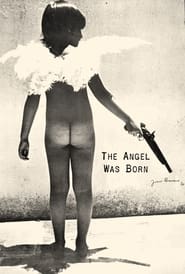 Santamaria and Urtigo are two bandits...
Santamaria and Urtigo are two bandits...The Angel Was Born 1969
Santamaria and Urtigo are two bandits on the run, one is white, the other black. Santamaria is a mystical visionary and believes in the imminent coming of a purifying angel. Urtiga, his inseparable companion, is a simple-minded and ingenious man who follows Santamaria around and participates in the crimes he commits. The two bandits take over a house after kidnapping its owner and his girlfriend.
 Eldorado a fictitious country in America...
Eldorado a fictitious country in America...Entranced Earth 1967
Eldorado, a fictitious country in America, is sparkling with the internal struggle for political power. In the eye of this social convulsion, the jaded journalist Paulo Martins opposes two equally corrupt political candidates: a pseudopopulist and a conservative. In this context, Paulo is torn between the madness of the elite and the blind submission of the masses. But, in this complex tropical reality, nothing really is what it seems to be.
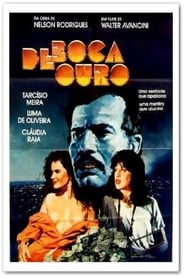
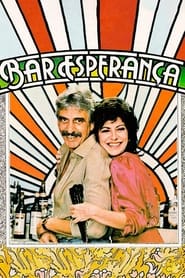 A group of eccentric people gather...
A group of eccentric people gather...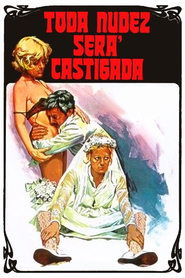 A rich spoiled young man encounters...
A rich spoiled young man encounters...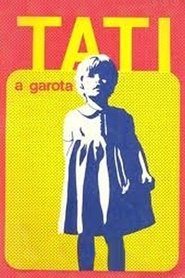 The seamstress Manuela Tatis single mother...
The seamstress Manuela Tatis single mother...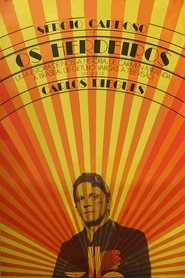 An allegory about Brazils history and...
An allegory about Brazils history and... After visiting a fortune teller Zulmira...
After visiting a fortune teller Zulmira...